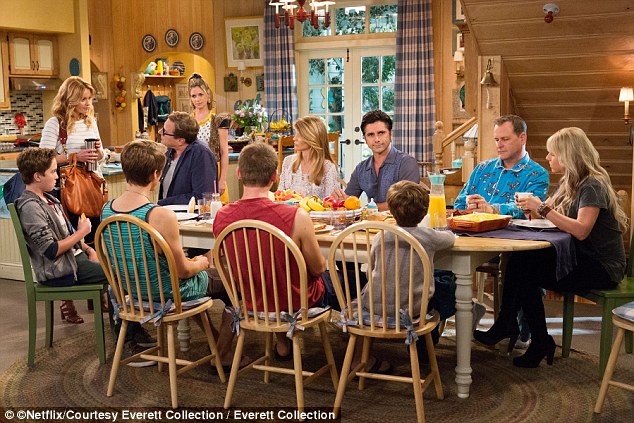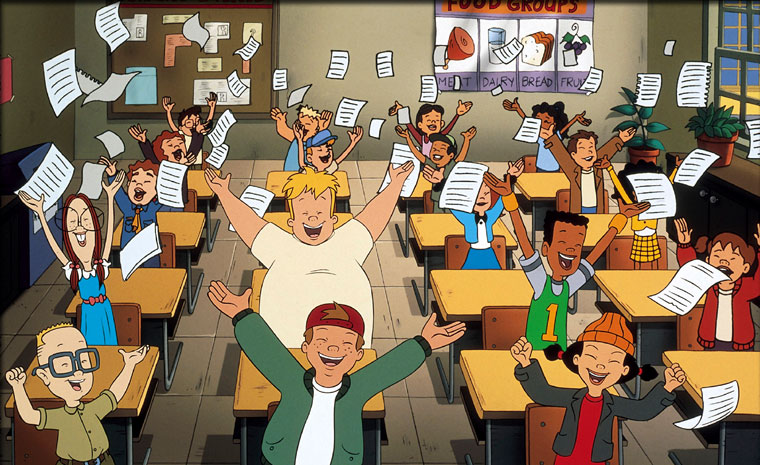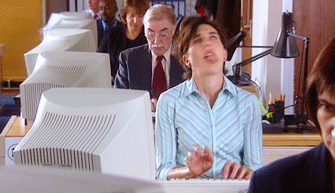
I’m starting a family. What’s this election got to do with me?
You might have heard there’s another election happening on the 8th of June. But with so much info being thrown around, we’re suffering from a serious case of TMI.
We’re trying to make it a little simpler. We've trawled through all the information we can get on the top five parties (thank us later – no seriously, do – this took ages) to try and make sure you've got the facts you need to make a decision.
This one’s for people who are about to start a family. If that doesn’t quite fit your situation, take a look at the rest of our coverage for some other scenarios that might match you better.*
Childcare

If you’re thinking about having kids of your own, childcare is going to be one of the biggest things on your mind. A lot of parents end up spending more on childcare than on their rent or mortgage. Here’s each party’s ideas on how to fix this:
The Conservatives have promised 30 hours a week of free childcare for parents of three to four year-olds who are struggling to pay for it. (It’s important to remember there’s no such thing as ‘free’ childcare – someone is still getting paid, it’s just the government paying for it.) Not all parents actually qualify for this though; you have to be working more than 16 hours a week, and a lot of people on zero-hours contract can’t prove they will be, so they wouldn't be able to access the childcare.
Labour wants to extend the free childcare to two year-olds and even some one year-olds. They’d run this through what Labour's calling the ‘National Education Service’, which is pledging to educate people ‘from cradle to grave’.
And what about when you go back to work? Who’s going to take care of the kid – mum, or dad?
The Conservatives brought in a policy of shared parental leave two years ago, giving parents the right to divide up to 52 weeks of leave and 39 weeks of pay between them. Interestingly enough, only 2 to 8 per cent of fathers actually take any of that.
Labour and the Lib Dems both want to double the amount of leave that’s allocated specifically to fathers, called paternity leave, to four weeks, and increase the amount of pay they’d get during that time.
Education

Making sure your child gets to the right school is one of the biggest worries for a new parent. Here’s how each party would help on the money you need to put your child through education, and the subjects available for them to study:
Labour wants to bring free school meals back to primary schools, funded by increasing tax on private schools. They’ve also promised to bring back something called the Educational Maintenance Allowance (EMA) which is basically a small grant for people in further education – A-levels, BTECs, etc – to help cover the costs of staying in school post-16. Labour says it will pay for this through raising the amount of tax businesses have to pay in corporation tax.
The Scottish National Party is also pro-EMA – they've still got it in Scotland, but they'll keep it going and add further student bursary funding too.
The Lib Dems have promised to expand the curriculum to include financial literacy, first aid, citizenship, age-appropriate sex and relationship education.
The Conservatives have a few ideas in their manifesto for early education. They'll introduce a fund to help primary schools develop nurseries, but will stick to the academy system. They'll review the catchment area policy to make school admissions more fair and put £4bn into improving schools by 2022. They don't believe in free school lunches for everyone, only offering it to low-income families and giving everyone free breakfast instead.
They also plan to bring back 'grammar' education in the UK – grammar schools are non-fee paying, but only let in kids who've passed certain tests. The Conservatives say it allows talented kids to excel and go to the best schools, critics (from pretty much all the other parties) say kids from richer families have an unfair advantage (their parents could pay for extra tuition, for example), and diverts funding away from the schools that teach all the other kids.
And if you’re really thinking ahead, here’s what each party has to say about university tuition:
Labour says it wants to work towards free education for everybody, from 'cradle to grave', and has promised to outlaw tuition fees. The Greens are proposing the same thing.
The Lib Dems have said that they’re hoping they’ll be forgiven for going back on their promise not to raise tuition fees in 2010. They're now speaking out against the continued rise in fees that Conservatives have been slowly but surely rolling out.
The Conservatives are sticking to the idea that the fee hike was a good thing, and are likely to keep increasing the rate on student loans. You can take out a loan to pay the fees and your maintenance, it'll just be a much bigger one than it would have been a few years ago.
Work

Having a family to support is a lot of pressure – it's like adding another job onto the one that brings the money home. Here’s what each government says about how many jobs they want to create, and what kind:
This is just a really difficult one to pin down a party on. Everyone says they're going to create the most and the best jobs.
The Conservatives say that they're all about "secure, high paying jobs in a strong economy" (they're really, really keen on using this word 'strong' as much as possible this campaign...) They do have a strong (sorry) track record of creating lots and lots of jobs – but they tend to be more on the low-pay, no-contract side of things.
Labour wants to “deliver investment and skills across the whole country” to make sure that job creation is more balanced and not just focused in the South East. It also wants to outlaw unpaid internships, which it says will help make sure that the people getting the best experience aren't just the people who can afford it.
Housing

What about where you and your family live? Are you renting? Can you afford to buy anywhere? Everyone pretty much agrees Britain is in a housing crisis – here’s how each party plans on fixing it:
The Conservatives, who are running the show at the moment, released a big paper in February about how they’d fix the housing market. Their main ideas were to give small building companies more funding to build homes, outlaw renting agency fees, and give local authorities more funding to build council homes too.
The Lib Dems say the Conservative Party isn’t going far enough. They say they’d build 300,000 new homes, give housing associations more money, create a Housing Investment Bank to generate even more money, and recruit more people into construction. They’d ban renting agency fees too.
Labour wants to go even further. They say they’ll build a million homes, half of which will be council houses. They’ve talked about putting a cap on how high landlords can set the rent – called a ‘rent control’ – and creating a charter of private tenants’ rights to make sure they don’t get ripped off. They’d also make a list of legal standards that rented homes need to comply with, like requirements for safe wiring and freedom from damp.
Healthcare
Hopefully you won’t have had to yet, but have you thought about what would happen if you or your family got sick?
The Lib Dems have promised to treat mental health problems as equal in the NHS, support the introduction of a regulated cannabis market (basically means legalization) and treat drug use as a health issue not a criminal one.
Labour has said they'll stop the government from putting private companies in charge of running parts of the NHS service – something called 'privatization' which the
Conservatives have been doing quite a lot of. They've said they'll treat mental health issues equally in the NHS, and will fuse together the support services that exist for elderly and disabled people with the running of the whole health system.
They also want to create a £250 million fund specifically for children's health.
The Greens are on side with these ideas as well, saying they want to take private companies out of the health system all together. So does the Scottish National Party.
The Conservatives have been cutting funds to the NHS for a while. They say it's to make it more efficient, but a lot of doctors unions and associations say it's going to damage the quality of the service. The Conservatives' solution is to sell a lot of it off to private companies – they say that's a more "profitable business model".
Transport

Another public service Q: how do you get around? When your train or bus is delayed, who do you blame? And how much does it cost to get from A to B?
Labour has said it will bring the railways under government control, which would mean all the different rail networks would have one owner – the government. It has also said it will expand the UK’s bus network. Greens are (you guessed it) on the same page as Labour here, but they also want to put an immediate 10 per cent fare reduction in place, and start campaigns to get people walking and cycling more too.
The Conservatives definitely wouldn't be keen on the whole government-ownership idea – they've just decided to give private companies like Virgin and Southern some control over things like repair and maintenance alongside the government-owned Network Rail. Their main thing is pushing through HS2, a high speed rail from London to Manchester.
Arts & Culture
What about your spare time? You might want to use a public library now and then – or take your kid to a local theatre or sports centre.
Labour wants to increase access to arts, culture and sports, and has hinted that it will reverse recent cuts to arts funding.
Conservatives have been cutting the arts for a while. The idea behind this is basically just the free market' way of thinking – which just means that you believe things will be better quality and more efficient if they're paid for by whoever wants to pay for them in a 'free' exchange, rather than if the government funds them.
They do still want to fund school sports, and keep museums free. But it's likely we'd have less publicly available arts and culture opportunities under a Conservative government.
Brexit
It's the reason this general election was called in the first place, and whoever gets in is going to have to go through a loooong negotiating process. Whatever they decide is going to have some definite effects on Brits in the UK and across the EU. Here's what each party has to say on it:
A lot of Conservatives (including Theresa May) were anti-Brexit before, but they're now pretty solidly pro. Theresa May is taking a pretty tough approach to talks so far, saying "no deal is better than a bad deal" and that the UK won't pay a penny to the EU before deciding on how they will keep trading with each other even after the UK leaves. But however talks go, they'd definitely go ahead under a Conservative government.
The Lib Dems are on the opposite side of the spectrum – they're strongly against leaving the EU and say they'll do everything they can to protect the 'single market', which is the arrangement between EU countries where trade is made as simple as possible. They want another referendum when the deal is ready to give UK citizens a say on whether they're happy with it.
The Greens are on the Lib Dem side on this one, saying basically the same thing. So is the Scottish National Party – except they also want the Scots to have some kind of special arrangement with the EU after Brexit, seeing as the majority of Scots didn't want to leave in the first place. They also want to have a second referendum on whether Scotland should be part of the UK after the UK leaves the EU, since one of the main arguments for staying in the UK last time around was because the EU is so important to Scotland and its economy, it could be a very different result this time.
Labour used to be pro-EU as well, but now they're kind of in a happy middle between the Lib Dems and the Conservatives – they want to make sure workers rights and access to the single market is protected, but they're against a second referendum.
For Scottish voters, the SNP are basically in limbo. Scotland overwhelmingly voted to stay in the EU, and the SNP are pretty adamant they’ll do everything they can to keep Scotland in, including leaving the UK. Noone even knows if that’s possible yet, and if it is, if it’s possible for Scotland to rejoin.
*A little disclaimer:
Obviously we don't know you personally, so we can't pinpoint exactly which issues are most important to you. This is just our guess at the things that are most likely to have an impact on your life, and what information would be most useful for you right now.
But perhaps you're someone who makes their decision to vote based on how each party approaches the 'big issues' like poverty or inequality, climate change, homelessness, and so on. If that's the case, stay tuned for our piece next week comparing what each party has to say about those wider issues.
Or perhaps you're someone who doesn't actually vote at all, because you don't think it matters – if that's the case, take a look at our video out next week about how governments link to your day to day.
We'll be updating these articles as more information becomes available, promise.
Was that helpful? Anything else you want us to talk about in the run up to the election? Get in touch at hello@ecnmy.org



